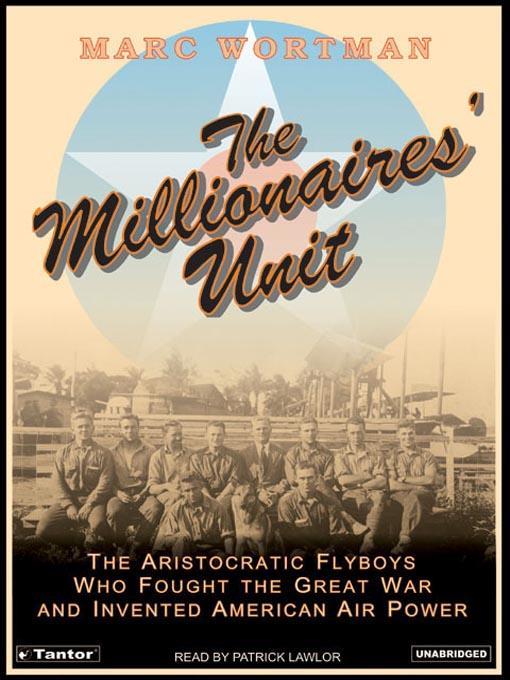
The Millionaires' Unit
The Aristocratic Flyboys Who Fought the Great War and Invented American Air Power
فرمت کتاب
audiobook
تاریخ انتشار
2006
نویسنده
Patrick Lawlorناشر
Tantor Media, Inc.شابک
9781400172504
کتاب های مرتبط
- اطلاعات
- نقد و بررسی
- دیدگاه کاربران
نقد و بررسی

A sense of duty and a romantic fascination with war propelled six members of the Yale Flying Club as they headed to France to become Allied flying aces in WWI. Marc Wortman's account of their heroism begins in New Haven. This gives narrator Patrick Lawlor the chance to tell rollicking stories about the collegiate careers of the war heroes before following them to France, where their story turns into a wartime adventure. In both venues, Lawlor brings their experiences alive, taking listeners into the social whirl of Yale's clubs and secret societies, and bringing them along for the ride in chilly, oxygen-poor cockpits, creating high drama from this real-life account of aerial warfare. J.A.S. (c) AudioFile 2007, Portland, Maine

April 3, 2006
Nostalgia permeates this romantic account of how U.S. air power was established in WWI by a privileged, patriotic group of undergraduates known as the Yale Flying Club. The book was developed from an article published in the Yale Alumni Magazine, and it shows: Wortman harkens back to a bygone era when campus regattas were the place to be seen, Harvard-Yale football games drew crowds 80,000 strong and, perhaps most jarringly, American isolationism placed the country's air command not just behind Germany's fearsome air service, but behind British and French forces as well. Preparing themselves for fire fights and bombing missions that generated harrowing casualty figures, these wealthy, elite Yale students saw it as their responsibility to fight on the front lines, and in the first wave. In a brief but important epilogue, Wortman spells out just how profoundly the times, and in particular the Yale campus, has changed in the past 90 years. Though times have indeed changed, and not entirely for the better, Wortman's creeping nostalgia serves to make attractive a history littered with inconvenient details; how readers react to this viewpoint-especially with regard to the compare-and-contrast epilogue-will largely determine their opinion of the book.

























دیدگاه کاربران